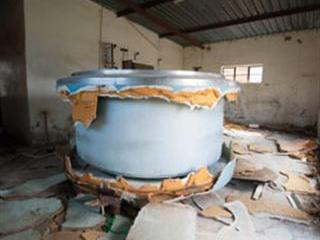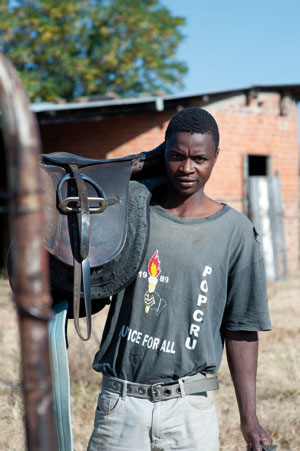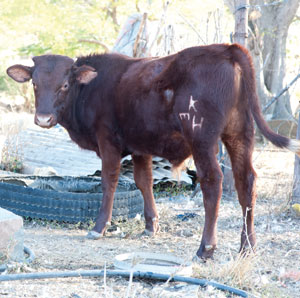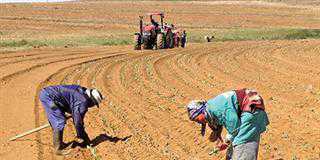
Does security correlate with falling production? Does it improve on the back of more equitable land distribution? We don’t really know. Recently KwaZulu-Natal-based agriculturalist Donna Hornby delivered a presentation to the Institute of Poverty Land and Agrarian Studies (Plaas) on social dynamics after land reform among former labour tenants in Besters, a cattle ranching area in the KwaZulu-Natal lowlands.
Flawed plan
In 2006, Farmer’s Weekly reported at length on the Besters/Quedusizi Cluster Project, the farmer-initiated transfer of 17 700ha of white-owned, commercially farmed land to 14 communal property associations (CPAs) comprising 183 households.
The heads of these households had, by and large, previously worked for the farmers who put the land up for sale. The deal cost the government R36 million.
There were still plenty of white commercial farmers in Besters, and so the project became a test case for land and skills transfer and for the cohabitation of white and black commercial stockmen. In 2010, Farmer’s Weekly returned to Besters and found the CPAs in trouble – the plan hadn’t worked as envisaged; it had been altogether too ambitious. The strategy, the architects of the plan admitted, had been flawed.
Violence
The social and economic flux which in many respects is still going on in Besters had not at this point produced a surge in crime. However, Hornby’s 2012 presentation suggested that this was no longer the case. Violence had become “woven into strategies of both survival and accumulation” of certain cattle farmers. She spoke of cattlemen serving time in jail for illegal possession of an R1 rifle, instead of murder, due, according to him, to his “strong muti”.
Intrigued, Farmer’s Weekly returned to Besters in early June to check these details with some of the CPAs, and commercial farmer Roland Hendersonyer, the project architect. At Mphuzanyoni CPA, 12km from a settlement called Peacetown, on a farm formerly known as Walker’s Hook, farmer Jabulani Tshabalala explained that CPA members had recently been relieved of seven weaners. Tyre tracks suggested the animals had been loaded onto a truck. At five months old, they were unbranded and a week of searching proved fruitless.
“They go for the young females as these are more valuable. The police won’t help unless you can give them a location. You must do the investigation yourself,” Tshabalala said. Worth R3 800 per animal, the loss is a blow. Tshabalala explained that the animals had belonged to individual members of the CPA, not to the communal herd.

Siphomandla Tshabalala of Mpuzhanyoni Communal Property Association in Besters, KwaZulu-Natal, prepares to saddle up in pursuit of thieves who raided the CPA barn the previous night. Photo: Caroline Suzman
“I lost one, and two other members lost five and one, respectively. I have 30 of my own cattle, and then we have the communal herd which is much bigger. It is better to have a communal herd because it saves money – when cows are stolen the loss is shared,” Tshabalala said. He is happier now than when he worked as a labourer on Walker’s Hook.
“The farmer limited my herd to 15 animals, now I can grow,” he said.
Politics of power
Ephraim Khoza and Moses Mpungose of Inyakanyaka Yumshini CPA said their members had experienced a rise in crime too, but it had not slowed the growth of the CPA’s communal herd, which at over 400 animals is the biggest in the district. The Msimangs of Nkuythukayishazwe CPA had a less happy tale to tell. Sacrament Msimang explained that the CPA dissolved its commercial cattle herd because there was mistrust among CPA members. This is the fate of the majority of the CPAs in the district.
“There were people from Johannesburg, people from Ladysmith, some of them tsotsis, so we split all the cows and did our own thing,” he said. Msimang decided to sell his cattle because other farmers in the area were experiencing high stock losses, with one neighbour losing 35 weaners in a year. The Msimangs changed to farming goats but in the last 12 months have had over 40 goats stolen.
“That’s more than R50 000, and the bad thing is we know who it is, and so do the police, but they do nothing, because the thieves have corrupted the police,” Msimang said. Msimang then described a security environment that sounded like a warped early Clint Eastwood movie: a story about a rogue CPA, dominated by a single family, that keeps (the Msimangs believe) two policemen and a local prosecutor on the payroll, and steals with impunity, threatening anyone who gets in their way with violence, and murdering (Msimang swears) those who cross them.
Henderson, who was taking a break from burning firebreaks along De Beers Pass when Farmers’ Weekly caught up with him, admitted that the bulk of crime in the district does indeed originate “with one or two crime syndicates, one of which is a CPA”. He was quick to put this in perspective, however: “It used to be that stock theft was perpetrated by poor, hungry people, nowadays you get big, well-capitalised syndicates operating with interlink trucks – not just here but all over the country,” he said.
Private security
Henderson claimed that stock theft levels were worse 12 years ago, at which point the Besters Farmers Association formed its own security company, Besters Farming Association Security (BFA Security), which charged farmers per hectare to pay for and equip BFA Security’s only employee – former policeman Dolf van Rensburg. “The local police service was beginning to deteriorate, so we brought Dolf in to do the investigations, the intelligence gathering, and the court follow up,” explained Henderson.

Branded heifers are easier to recover. Besters’ stock thieves are targeting unbranded weaners which are more difficult to trace and fetch as much as R4 300 an animal when informally traded.
Although individual CPAs have their own personal security strategies – Richard Msimang is applying for a gun licence; Jabulani Tshabalala has an informer network in Peacetown; the members of Inyakanyaka are benefiting from the government appointed security services that watch over the construction of a government funded feedlot on their property – the CPAs fall under the security umbrella of Besters’ commercial farmers. Ultimately it is to BFA Security that they turn when things go wrong.
“To begin with, they were all members, but when they were left to run their own farms their cash flow was not up to the membership fee. They acknowledge that they should be paying but they’re just not able to. It’s not ideal but we continue to help out because it’s in our interests,” said Henderson. Mphuzanyoni is once again a paid-up member after the theft of the seven weaners, a financial loss of about R25 000, whereas the annual membership fee is R13 000.
Inyakanyaka is also negotiating to rejoin, but Khoza said that members see other CPAs being served by BFA Security even though they haven’t paid. Henderson admitted the model’s imperfections but said that it had worked for Besters. Stock theft levels in neighbouring districts had sky-rocketed whereas crime in Besters had remained stable.
Eskom, a major landowner in the area thanks to the Drakensberg Pumped Storage Scheme, has become a member and partner of BFA Security. It has introduced 24-hour-a-day camera surveillance of district crossroads and choke points, and facilitated meetings with senior police officials and local politicians.
“One problem is that we can’t make arrests. Unfortunately the few policemen we can work with are too busy, as are the specialised stock theft units,” said Henderson. He added that syndicate members always appeared in court accompanied by advocates.
Police slump
It is perhaps too early to say if Besters’ crime problem can be attributed on any level to changed social dynamics after land reform; it could be a symptom of a nationwide slump in rural policing capacity. Henderson said that, on the up-side, there had been “very little racial animosity” in the district. Unfortunately only days after I’d spoken with him, an elderly white farming couple, the Boshoffs, were attacked and severely beaten on their Besters farm by soccer boot-wearing youths, who stole four firearms.
It would be reckless to conclude that the attack on the Boshoffs was anything but an isolated incident, until such time as the suspects are apprehended and their motives revealed. For now, the Besters’ problem is theft. When I returned to Mphuzanyoni, it was to find Tshabalala’s sons grimly saddling their horses. Two rolls of brand new razor wire had been stolen from their barn during the night.
The men followed the thieves’ tracks on foot to the riverbed, and then mounted up and went off slowly in different directions to hunt for their property. As the Wild West lacked the romance it assumes in the movies, so the realities of land reform never quite square with the hopes of beneficiaries and the rhetoric of government. “It’s just life,” said Tshabalala. “If we are organised and strong, the thieves won’t come back. If we do nothing, they will take everything we have.”












